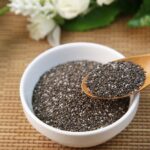
How To Reduce Stress: 15 of the Best Ways
What Causes Stress
Stress is a very common issue amongst individuals of all ages. It has become an unfortunate part of everyday life and can affect a person’s physical, emotional, and mental health. But just what causes stress?
There are many different sources of stress, but the underlying factor is usually the same: pressure to perform. So, to understand stress, one must understand the pressure that causes it.
The most common cause of stress is related to work. Whether it is a tight deadline, unachievable goals, or overbearing management, the pressures at work can cause great anxiety and stress. Other causes of stress at work include inadequate pay, demanding hours, lack of control over workload and deadlines, and lack of job security.
Another major source of stress is financial pressure. This can include debt, bills, and budgeting. Financial issues can cause a lot of stress and make people feel helpless, when in reality there are ways to manage and overcome monetary pressures.
Relationship problems can also be incredibly stressful. Arguments, frustrations, and heartbreak all make up a massive part of relationship stress. This can be from romantic relationships, family relationships, friendships, and any other kind of relationship.
But even life’s little everyday stresses can add up, such as cleaning, errands, sluggish days, and congested traffic.
Finally, stress can be caused by external events, such as natural disasters, accidents, or unexpected losses. These events out of our control can still cause a great deal of stress.
No matter what is causing the stress, it’s important to take the time to identify it and find healthy ways to manage it. Stress is an issue faced by virtually everyone, and it needs to be taken seriously in order to ensure healthier, happier lives.
15 Ways To Reduce Stress
Stress is an unavoidable fact of life. It can appear in our lives in small doses, or in larger proportions, depending on the situation. While it can be useful and can even motivate us to take action, too much stress can cause physical and emotional harm and should be dealt with immediately. Fortunately, there are a number of strategies that can help you reduce the impact of stress on your life. Here are 15 of the best ways to reduce stress:
1. Adopt a positive attitude: Attitude is everything. By adopting a more positive outlook on life and choosing to see the good in all situations, you can help to reduce some of your stress and promote feelings of calm.
2. Take a break: Taking regular breaks throughout the day can help reduce your stress levels, especially if these breaks involve activities you enjoy, such as walking, reading, or listening to music.
3. Exercise: Exercise is a great way to reduce stress and promote emotional wellbeing. Engage in activities you enjoy or try something new like yoga or Tai Chi.
4. Get enough sleep: Sleep deprivation can trigger stress, so make a conscious effort to get enough restful sleep each night.
5. Talk to someone: Chatting with a friend, family member, or even a professional can be hugely beneficial for reducing stress.
6. Learn to relax: Make time for activities that help you to relax such as listening to music, going for a massage, or meditating.
7. Focus on one task at a time: Multitasking is one of the major causes of stress, so it’s important to focus on one task at a time and give it your full attention.
8. Say ‘no’: Don’t take on more than you can handle. Learning how to say no and prioritizing your time will help reduce stress.
9. Practice deep breathing: Taking some time to focus on your breathing can help to reduce stress and promote feelings of calm.
10. Avoid negative people: Just like a negative attitude can add to your stress levels, so too can negative people.
11. Make time for yourself: Schedule some time each day just for you, even if it’s just for a few minutes.
12. Learn to accept: Learning to accept what you cannot change can help to reduce stress and free up time for more productive activities.
13. Eat right: A balanced diet high in essential vitamins and minerals can help to reduce stress.
14. Pamper yourself: Take some time to pamper yourself. Whether it’s going to the spa, getting a massage, or reading a book, this can help reduce stress.
15. Laugh: Laughter is the best medicine, and can reduce stress and promote feelings of happiness and wellbeing.
Best Supplements To Reduce Stress
Stress is an alarm bell that the mind and body sound in times of distress. It is triggered by the external environment, making it a normal reaction in our day-to-day life. Although a certain amount of stress is beneficial for the body, too much of it can have negative impacts on our mental health as well as physical health. The adverse effects of stress can include insomnia, headaches, low energy, irritability, and digestive issues. To reduce stress, eating healthy and exercising is a must, but there are some supplements that can help with this too. Here are some of the best supplements to reduce stress:
1. Magnesium: Magnesium helps to support the body’s natural calming process, counteracting stress and encouraging relaxation. Deficiency in magnesium can cause physical agitatedness, irritability and even mental health issues such as depression and anxiety.
2. Ashwagandha: Ashwagandha is an adaptogen herb that is known to reduce cortisol levels and balance hormone levels. It also helps to reduce fatigue, anxiety and insomnia, restoring balance back to our bodies.
3. Omega-3: Omega-3 fatty acids are a type of polyunsaturated fat, and studies have shown that they can help to reduce stress and anxiety. Omega-3 helps to make the body’s nerve cells more capable of handling stress, and it affects neurotransmitters that are related to mood swings and brain chemistry.
4. Ginseng: Ginseng is an adaptogen herb that helps to strengthen the body’s response to stress. It helps to keep your stress levels in check during difficult or trying times, and it can even help to improve energy levels.
5. Vitamin B Complex: Vitamin B complex includes B1, B2, B3, B5, B6 and various other forms. This vitamin helps to control mood swings and energy levels, calming the nervous system and reducing stress.
Taking supplements can be a great way to reduce the effects of stress and anxiety, but it’s important to talk to your doctor before beginning a supplement regimen. Supplements are not always safe for everyone, and it’s important to be aware of any potential side effects. It is also important to take supplements as directed, and to only take them alongside a healthy lifestyle. Eating healthy, exercising regularly and getting enough rest are all key to reducing stress.


